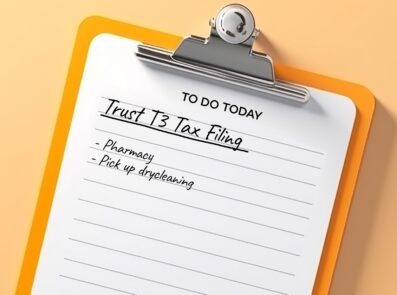With promises to spend billions to boost the economy, and at the same time balance the budget in 2019/2020, the Liberal government has a few tax collecting tools up its sleeve.
Avoid CRA Audits
Next to working on closing tax loopholes, an obvious means of recouping unpaid taxes is through audits, and the number of audits targeting small businesses and individuals is increasing dramatically. These are being felt in all areas – personal returns, corporate income taxes, GST/HST filings, and payroll accounts.
There are ways to stay below the Canada Revenue Agency’s (CRA) radar and, aside from correct and iron-clad calculations on tax returns, being proactive is chief among them. In other words, if you’ve made a mistake, tell CRA before they tell you.
CRA Red Flags
When it comes to sales tax, there are a few quick calculations that can trigger a CRA inquiry when the numbers don’t add up. The first is a sales comparison. CRA will compare the sales reported on a corporate income tax return, as per the General Index of Financial Information (GIFI), to the total reported on Line 101 of the GST/HST return(s) filed for the same period.
If there is a discrepancy, CRA will suspect that not all of the company’s sales have been reported for either income tax or sales tax. Often there can be a simple and honest explanation – if the company incurs either zero-rated or exempt sales for HST purposes, for example. The important thing is to make the comparison before CRA does, and ensure any differences can be explained.
A second calculation is simply applying the sales tax rate to the sales reported on Line 101 of HST filings to the amount of tax collected reported on Line 105. If this number is less than the expectation (13% in Ontario), there is the potential for a CRA inquiry. Again, there are many reasons why this calculation may not work out to exactly the figure expected, but the important thing is to pre-emptively do the math and be ready to answer any questions.
Claiming Losses to the CRA
For individual income tax returns, an increasingly hot topic of review is claiming losses from self-employment sources or rental income. CRA operates under the principle that anyone running their own business or investing in a rental property does so with the intention of ultimately generating a profit. This profit doesn’t need to be realized in year one, but in scenarios where individuals are perpetually reporting losses from sole proprietorships or real estate ventures, CRA will draw a line.
Net worth assessments are a means of identifying under-reported income. CRA can request personal banking records and other documentation, and will do their own calculations to determine an individual’s income. These assessments are often inaccurate, given incomplete records and unrealistic assumptions; however, the onus is on the taxpayer to prove CRA wrong, and the process can be tedious, stressful and frustrating.
Reporting Income and Balance Deductions
The important thing is to be fair when reporting income and balance the deductions available without being overly aggressive. The tax savings are not worth the headache. For corporations, an easy tip-off for CRA is the balance in the shareholder loan account. Shareholders who withdraw cash from their company, or have the business pay personal expenses on their behalf, create a balance owing that needs to either be reimbursed or reported as personal income. Leaving the balance outstanding explicitly identifies cash that has been withdrawn without the shareholder paying any tax on it.
There are many ways to end up on the receiving end of an audit letter from CRA. The trick, through proper planning and review, is to avoid sending them an invitation to do so.







